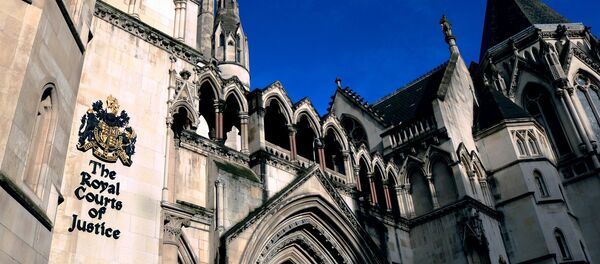Jeremy Wright QC, who is due to speak in London, believes that technological advancements are making it easier for terrorists to mount attacks against the UK.
The Attorney General believes that the front line has been "irretrievably altered" with technology allowing criminals and terrorists to evade law enforcement officers.
The call for more scrutiny over British overseas military strikes comes after MPs and peers called on cabinet ministers under David Cameron to clarify the legal basis for launching RAF drone strikes against Daesh in Syria.
In landmark speech Att Gen Jeremy Wright QC, will for 1st time, outline legal factors before military action taken vs terror targets abroad
— clive coleman (@colemancr) January 11, 2017
The request followed the revelation in September 2016 by former Prime Minister David Cameron that an RAF drone had killed two British jihadists in Syria in August 2015.
What is the Government's policy on the use of drones for targeted killing? Read our report: https://t.co/yIMNIxHbxA pic.twitter.com/dXVwd2azk5
— Human Rights Ctte (@HumanRightsCtte) May 10, 2016
Reyaad Khan, a 21-year-old man from Cardiff, Wales, was targeted in an attack near the Daesh stronghold of Raqqa, a second British national also died in the drone strike.
UK Intelligence and Security Committee has submitted its report on UK drone strike against Reyaad Khan to the PM https://t.co/cXlCRGE7RE pic.twitter.com/24dWllHhhd
— Drone Wars (@Drone_Wars_UK) December 28, 2016
In his speech in central London, Jeremy Wright QC will say: "The UK is a world leader in promoting, defending and shaping international law — and for the first time we are setting out how we determine whether an attack in imminent."
"We are a long way from being able to see troops massing on the horizon. The front line has irretrievable been altered.
"Technology has made it easier for terrorists to carry out attacks."
The threat of a terror attack in the UK remains as "severe," which means an attack is "highly likely."
Britain's security services have foiled around ten potential terrorist attacks in the past two years.
However, as Britain shifts its position away from Europe following the Brexit referendum, the UK, and indeed the government's top lawyer, is keen to secure Britain's standing as a "world leader in promoting, defending and shaping international law."



